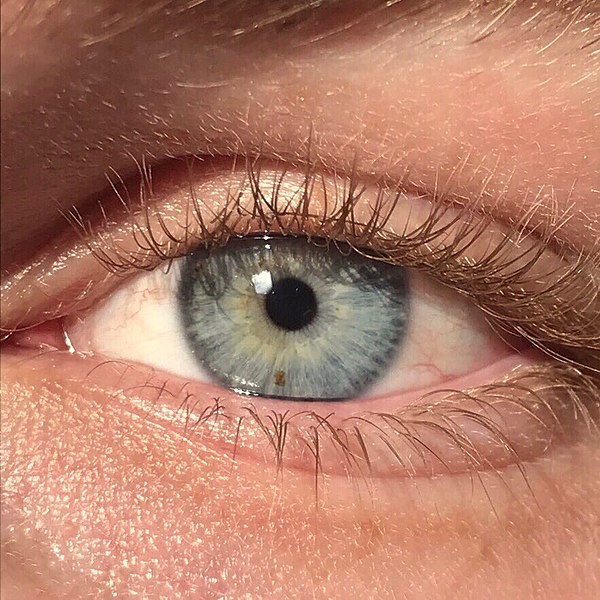Blue eyes have historically been a significant measure of attractiveness, and although they’re commonly found among actors and models, only 17% of the global population has them. For the majority of people, approximately 80% of the population, blue eyes have been attainable only with the aid of colored contact lenses or artificial iris implants. But that will soon change with the introduction of a new medical procedure, pioneered by California company Stroma Medical, that can turn brown eyes blue.
The laser procedure works by eliminating the melanin -, the pigment that also colors hair and skin – from the surface of the iris, which then allows light to enter and scatter in the stroma, the fibers seen in light-colored eyes. The effect is similar to Rayleigh scattering, in which wavelengths of sunlight hit much smaller molecules in the air and then scatter, which makes the atmosphere appear blue.

Photo: Lucashawranke
“The fundamental principle is that under every brown eye is a blue eye,” Dr. Gregg Homer told CNN, back in 2015, adding that there is no actual blue pigmentation in the eye. “The only difference between a brown eye and a blue eye is this very thin layer of pigment on the surface. If you take that pigment away, then the light can enter the stroma – the little fibers that look like bicycle spokes in a light eye – and when the light scatters it only reflects back the shortest wavelengths, and that’s the blue end of the spectrum.”
The laser treatment disrupts the fragile layer of pigment on the iris, which causes the body to start removing the tissue naturally. While the procedure itself only takes around 20 seconds, the blue eyes do not emerge for several weeks, as the body can only gradually release the pigment.
“It’s difficult to work out a way to injure someone with this laser because the energy is so low,” Homer said. The laser only treats the iris and does not enter any part of the eye where the nerves affecting the vision are located.

Stroma Medical aspires to develop the safest, cheapest, and most convenient procedure available on the market, but it has yet to gain approval from the regulatory bodies in the United States. The company’s medical board has stated that preliminary studies show that the surgery is safe, but so far only 37 patients altogether have undergone the treatment. 17 patients were in Mexico and the remaining 20 in Costa Rica. The company is currently in the fundraising stage as it searches for investors, but hopes to have completed clinical trials within a few years. Currently, the price to change brown eyes blue stands at a relatively high amount of $5,000 (USD).
The medical industry, ophthalmologists in particular, has not been particularly receptive to the procedure. Their skepticism is based on the fact that the eyes are one of the most sensitive organs in the human body, and that the procedure is irreversible. One of their main concerns is that the laser procedure releases the melanin pigment inside the eye where it can clog up the organ’s drainage channels, which could increase ocular pressure. In time, this could lead to the development of glaucoma. However, Stroma Medical claims that the particles released by the procedure are too small to cause to clog the channels.
“It’s not a goal of our company to promote blue eyes,” Stroma Medica’s Dr. Gregg Homer told CNN. “From my experience what most people are after is the translucence of the blue eye rather than the color of the blue eye. The people who seem most vigilant about pursuing this always have a story about being young and in the presence of a sibling or a friend who had light eyes and the friend is being told how beautiful their eyes are, and it sticks with them. That seems to be something they’ve carried around with them. Would it be better for them to get over it? Probably. All your problems don’t go away because you’ve changed your eye color, but I do believe that people like to express themselves a certain way and it’s nice when they have the freedom to do that.”













